Submission Deadline
28 February 2026
Judging
Date
24 & 25 March 2026
Winners Announcement
22 April 2026
28 February 2026
24 & 25 March 2026
22 April 2026
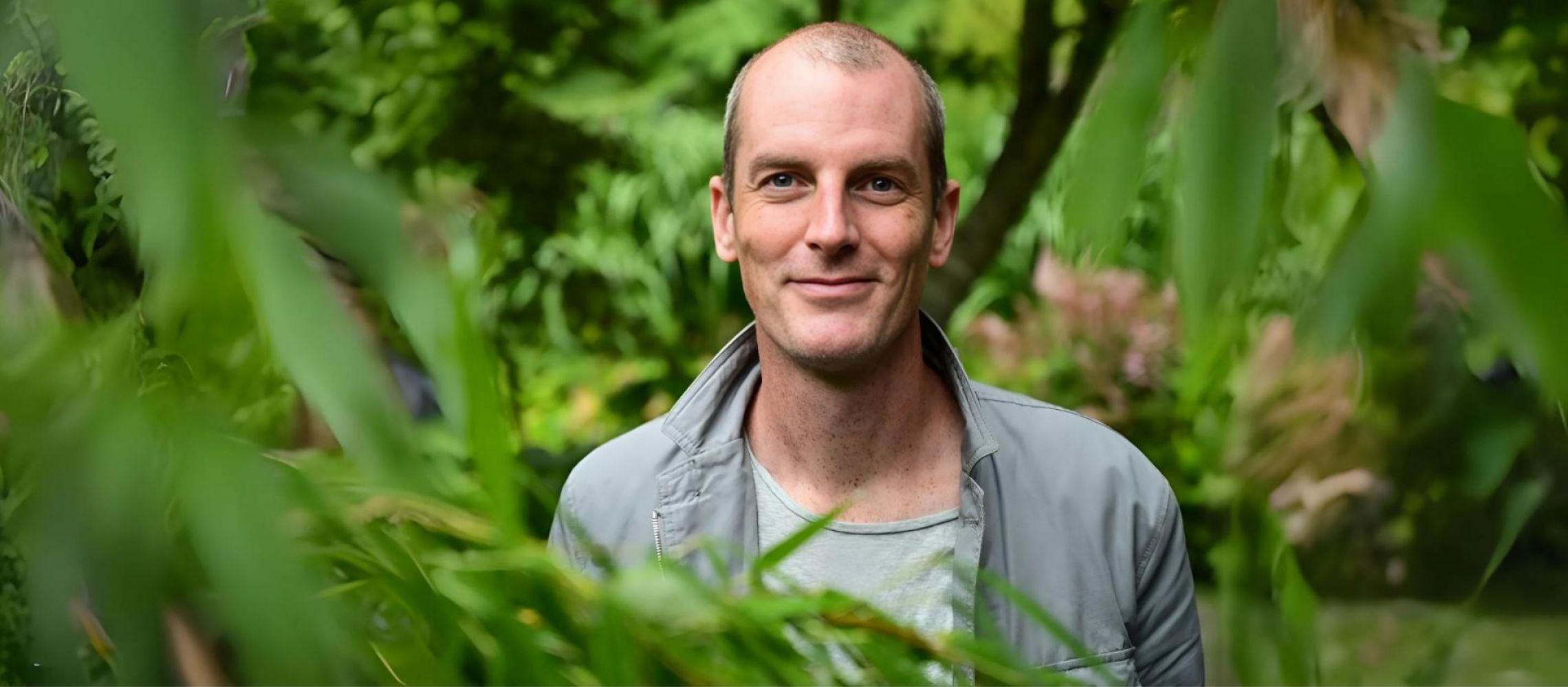
Paul Mathew’s career is anything but ordinary. With a background as a conservation biologist and years of experience as a renowned bartender and bar owner, Mathew brings a rare blend of scientific insight and hospitality expertise to the creation of Everleaf, a non-alcoholic aperitif that has taken the drinks industry by storm. Inspired by his father’s passion for botany and his own extensive travels, Mathew has crafted Everleaf from 18 sustainably sourced botanicals, each contributing to a rich tapestry of flavors and textures. With Forest, Mountain, and Marine variants, Everleaf is more than just another non-alcoholic drink—it’s a reflection of nature, sustainability, and innovation in a rapidly growing non-alcoholic market.
My father was a botanist, studying plants in the wild and at the Herbarium at Kew Gardens. I followed closely in his footsteps but loved the human element - how people use the plants and influence the habitats in which they grow. This led to my first career as a conservation biologist, looking at how people could use plants sustainably. I sometimes say that back then I was a biologist first and a bartender second, because I have been working behind bars since my university days. I travelled a lot with conservation charities and was lucky enough to try many drinks in their natural environments, from Caipirinhas in Brazil to Daiquiris around the Caribbean, from Chinese baijiu to infused Vietnamese rice wines. Eventually, the interest in one overtook the other and I became a bartender with a passion for conservation instead. That meant when I was developing Everleaf, I was drawn to trying to capture some of those experiences in the form of the ingredients I used. That’s why our products are called Forest, Mountain and Marine.
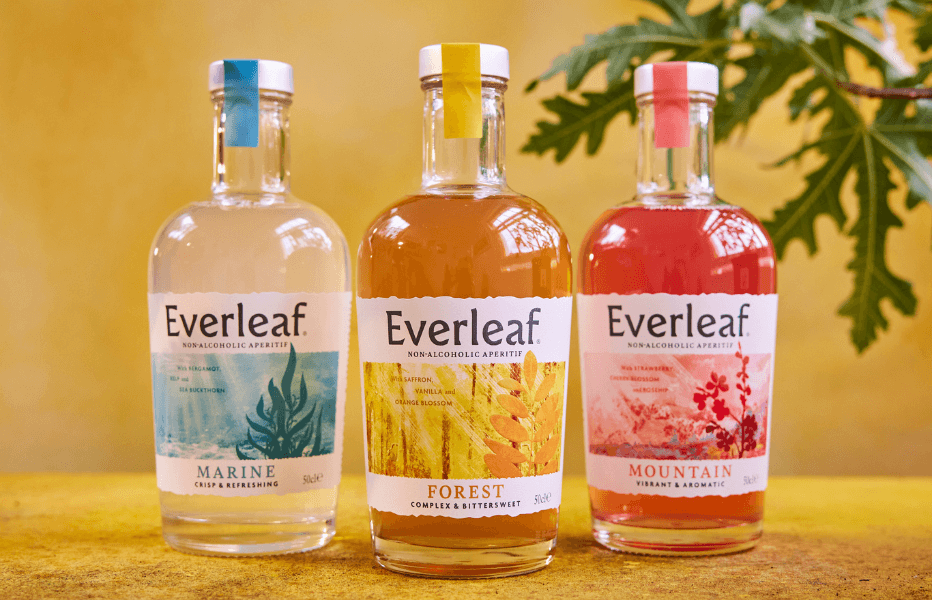
Image: Everleaf Marine, Everleaf Forest, and Everleaf Mountain.
We look at all our ingredients under a good/better/best approach. Firstly we assess whether or not the plant is in any way threatened or at risk in trade. If it is, we won’t use it (this is basic “good” practice). For example, some of the first Everleaf Forest contained quassia which is on the IUCN Red List. Our supplier wasn’t able to provide proof that it was sourced sustainably, so we stopped using it as soon as we had assessed it. “Better” means that there’s another level of benefit to the sourcing, for example, I went down a rabbit hole with sugar, initially using Fair Trade cane sugar to support farmers producing in the right way, but have now settled on British beet sugar as it significantly reduced our carbon footprint. Finally, there’s “best” - the sourcing is actively benefitting communities and plant conservation. In this case, we have things like our Madagascan vanilla, sourced from a programme that is funding schooling, adult education initiatives, best practice agriculture, and conservation of protected areas around the vanilla producers. In this case, I’ve even been out to verify what is being done and met some of the farmers growing our vanilla organically. By sourcing in this way, we find that not only do we get the ingredients with the least impact, but we also get the ones that taste better too. More care over growing something means more flavour out!
One of the first things I worked on with Everleaf was the texture. I think this is one of the key parts of a drink, but doesn’t get talked about nearly as often as flavour and aroma. It was the hardest part to get right too, and I’ve spent many, many hours experimenting with a lot of different plants over the last 6 years working on it. We’ve changed the plants we use a couple of times in Everleaf’s history, and I’m always looking for new ways to improve it. Texture helps flavours develop on the palate, and texture helps drive a more grown-up drinking experience, so whilst it may not be the first thing you notice, it’s a key part of Everleaf. In the case of seaweed, it adds weight and body to the liquid; structure if you like. It allows the flavours to develop on the palate. As for acacia gum, it’s the silky finish to the drink that makes it very moreish.
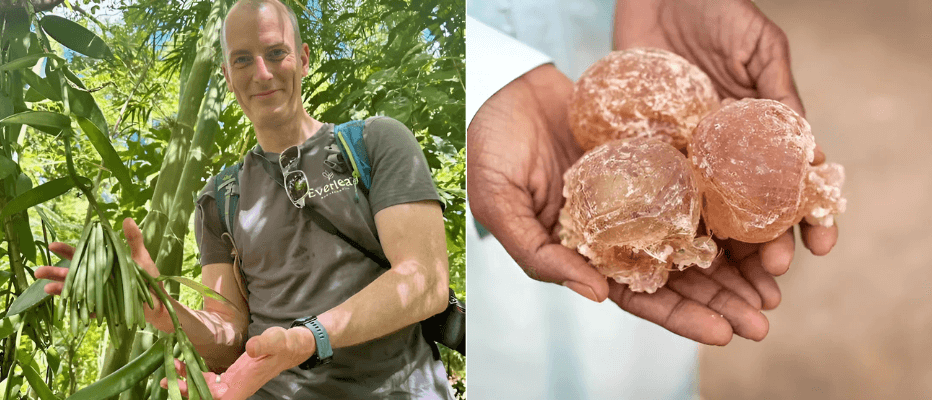
Image: (Left) Paul with the Vanilla plant, Vanilla planifolia, and (Right) Acacia Gum.
I’m a picky bartender, and only like having bottles I love behind me. I have to want to pick up all of them and have to know how to use each of them in different ways. I made Everleaf as I didn’t have enough products offering me that in the non-alc category when we launched almost six years ago. If you don’t have the things you want to use, you make them!
I never cease to be amazed and delighted by the reception that Everleaf has had. We’re in around 3,000 bars and restaurants in the UK now, and growing rapidly. Bartenders and chefs I’ve admired for years are making drinks with my ingredients and it’s just brilliant! I think the particularly fun ones have been rather ad hoc - like sitting next to a group of Masters of Wine recently, surrounded by many wines to taste, they had all chosen an Everleaf and tonic instead! Every time I see a non-alcoholic Everleaf drink on a menu is special too - it means the bartender has chosen Everleaf to play a role in that drink above so many other alcoholic products - I’ve always wanted it to be as good as any of the best products on the back bar, alcoholic or not.
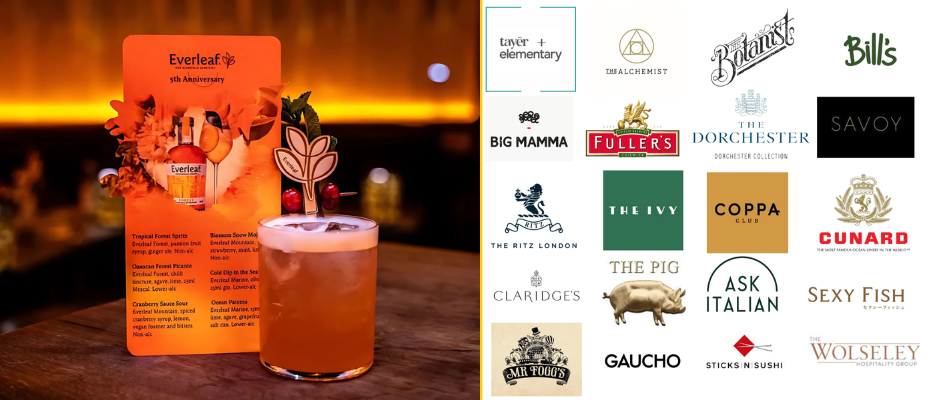
Image: Some of Everleaf’s customers in the UK.
Everleaf has very much taken the lead over the last few years, and in fact we sold The Hide earlier this year. We still have two small venues though, run by a great team that doesn’t need much of my input beyond paying the bills! I do miss being behind the bar though, and love it when I’m allowed to disrupt things there, or on a guest stint elsewhere!
Sourcing is one of three branches of our sustainability. The other two parts are about how we work as a company - we are B-Corp certified as well as carbon neutral certified, and finally about how we give back. We donate at least 1% of our turnover to plant conservation charities through 1% For The Planet, as well as donating to hospitality charities in the UK where we’re based. I think sustainability has to be considered in the round like that. It’s not just tick one thing and you’re done.
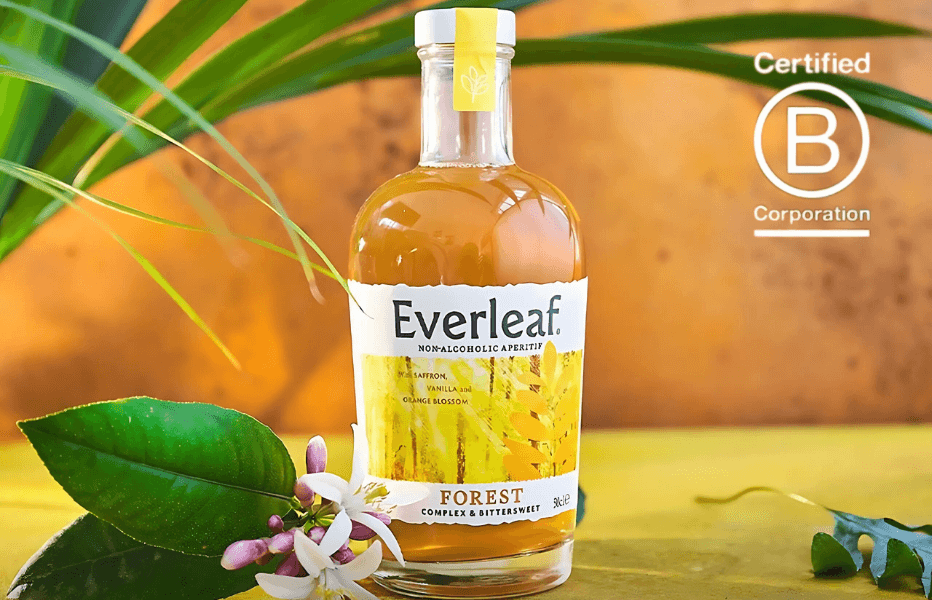
Image: Everleaf is a B-Corp-certified company.
Ocado is the perfect partner for us as they have an excellent range of products across food and drink which tends to attract just the kind of consumer that enjoys Everleaf. Curious, flavour-focused, and always in search of new ingredients and experiences. Being available there means that consumers who find us in their favourite bar or restaurant can then take Everleaf into their home to share with friends and family.
I think it signals good things for the future of the NA drinks market - their range is fantastic, and having the advantage of being online only means they can stock a wider range appealing to all palates and price points.
I really started making a lot more non-alcoholic drinks while I was working in China. We had a lot of guests who wanted the experience of going out to a great bar to drink cocktails but weren’t that keen on alcohol, so I got a lot more creative. I also had a lot of great ingredients to work with, and it really helped me to have a bigger palette of flavours to work with when I started work on Everleaf. I’ve yet to include two of my favourite fruits though - yangmei and mangosteen. Maybe I can work on something with those in the future!
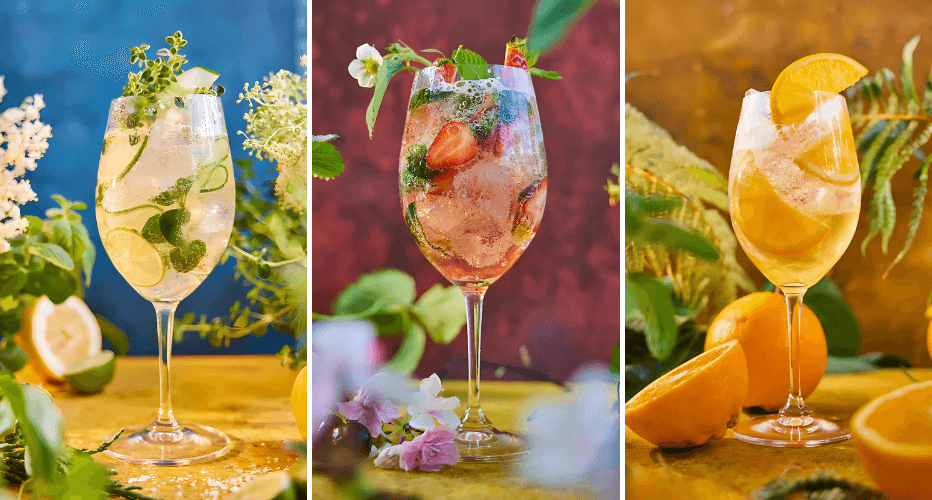
Image: (Left-Right) Everleaf non-alcoholic cocktails - Everleaf Marine Spritz, Everleaf Mountain Spritz, Everleaf Forest Spritz.
Sadly a typical day isn’t working on new flavours, but I do love the development process. The initial work involved dehydrating, macerating, and extracting loads of different plants in the kitchen. I was digging things up from the garden to see what worked! Now it’s a little more scientific, but I’m still on the lookout for new things all the time, and we have a few tweaks coming to the recipes which I think will improve both the flavour and the sustainability. It’s a constant evolution.
Would it be boring to say Covid? As a mainly on-trade focused brand then, that was a massive brick wall, both for Everleaf and the bars. The rules changed overnight and we were hustling every day to find a way through. I think it’s still having a big knock-on for hospitality, though Everleaf is growing vigorously despite the challenges. Every year is a milestone. We launched in Dry Jan 2019, the 1/1 so it’s an easy anniversary to remember! We’ve grown every year, but this one has been particularly good so far, so I’m looking forward to celebrating 6 years with our inspiring Everleaf team very soon!
[[relatedPurchasesItems-63]]
As Everleaf continues to grow in popularity, both in the UK and internationally, Paul Mathew’s commitment to sustainability and quality remains at the forefront of his brand. His background as a conservation biologist has not only shaped Everleaf’s flavor profiles but also ensured that each bottle is produced with care for the planet and its people. With an ever-expanding range of non-alcoholic beverages and partnerships like Ocado bringing Everleaf to new consumers, Mathew’s vision for a more sustainable and inclusive drinks industry is becoming a reality—one botanically inspired sip at a time.
In conversation with Malvika Patel, Editor and VP, Beverage Trade Network
Also Read:
Top Non-Alcoholic Drinks to Refresh Your Summer: London Spirits Competition Winners 2024
No & Low Alcoholic Beverages Entries Now Open For London Wine, Beer and Spirits Competitions
Why you should embrace the low or no alcohol trend
Show your spirits where it matters. Get your products tasted by top bartenders, buyers and experts at the London Competitions — enter now.